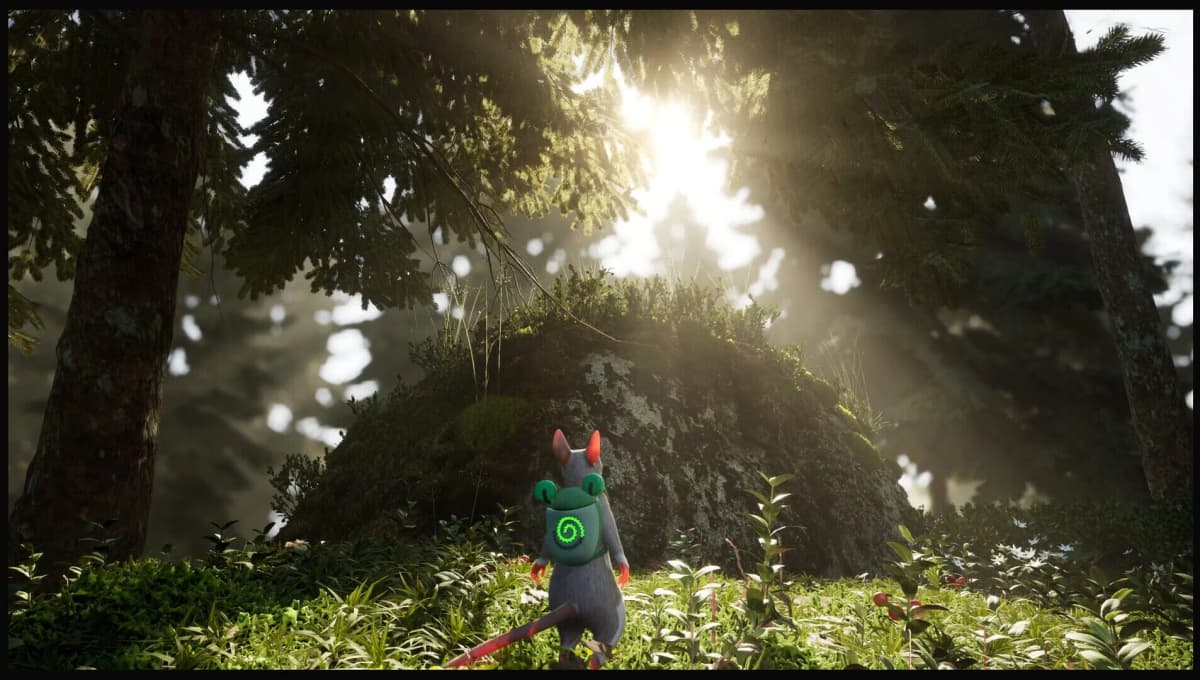
When Windup Games first unveiled Hela at the Future Games Show, it felt like a breath of fresh forest air in a sea of post-apocalyptic dreariness. With its luminous Scandinavian woods, mischievous mouse familiars, and a twin-stick wand of cooperative magic, Hela promises to strike that sweet chord between heartwarming indie charm and satisfying mechanical depth. Yet, as the “cozy” label gets flung around more liberally than confetti at a festival, the big question remains: can Hela truly cast a unique spell?
At its core, Hela leans into physics-powered puzzles set in wind-whipped valleys, icy caverns, and sun-dappled groves. Imagine stacking enchanted runestones to divert streaming water, only to have your mouse familiar scurry down an underground pipe to open a floodgate. Or picture teaming up to tilt giant gears atop a frozen waterfall—one player magnetizes the gear with a lightning-infused spell, the other uses a grappling hook to stabilize its spin. These layered challenges recall the delightful contraptions of Portal 2 and the quirky synergy in It Takes Two.
“We wanted each puzzle to feel like a living riddle,” says Sara Jonsson, Windup Games’ lead designer. “Players should experiment—not just click, but think about momentum, weight distribution, and mouse abilities.”
Beyond physics puzzles, Hela’s magical backpack system houses everything from glowing frost crystals to enchanted seeds. Developers hint at a crafting mini-game where players combine items—sprinkle a handful of ember dust into a water globe to create temporary ice bridges, or weave vine-roots to grow instant ladders. These mechanics aim to foster creative problem-solving rather than rote fetch quests.

Cooperative play is often an add-on in indie titles, but Windup Games insists Hela’s co-op is integral. Expect asymmetrical mouse roles: one familiar can slip through narrow tunnels to unlock hidden levers, while the other manipulates magical light to activate glyphs on the walls. In a local session, Player One might conjure a gust spell to clear poisonous spores, allowing Player Two to safe-jump across glowing platforms. Online, voice cues trigger combo spells—say “ignite” to your partner, and they’ll spark a chain of fireflies that light up invisible runes.
“We looked at the best co-op puzzles out there—Luigi’s Mansion 3, Portal 2—and asked, ‘How do we make them feel as if they’ve never been done before?’” explains technical director Emil Karlsson.
These scenarios showcase genuine teamwork instead of side-by-side grinding. If success depends on both players juggling distinct magical roles, Hela could redefine how indie co-op adventures engage partners.

The titular “heal the world” mechanic goes beyond perfunctory side quests. Early prototypes let players decide whether to cleanse a corrupted glade or redirect those cleansing energies to repair an abandoned village well. Each choice alters the map: a healed forest sprouts new puzzle platforms, while a revived village trades resources for new character interactions—think farmers offering enchanted crops that yield lighter puzzle elements.
Hypothetical outcomes run deep: purify a cursed spring and watch ghostly water nymphs reveal secret pathways; channel that energy into town and unlock a steam-powered bridge your mice can ride. Over time, the land visually transforms—withered trees blossom, wildlife returns, and the aesthetic evolution mirrors your moral compass. It’s an approach reminiscent of Spiritfarer’s tributary kindness but with more tangible mechanical payoffs.
Spiritfarer charmed players with caregiving loops; It Takes Two dazzled with inventive co-op setpieces; Trine mastered physics-based platforming. Hela sits at the intersection, borrowing beloved elements while promising fresh twists. Its fairytale tone echoes Brothers: A Tale of Two Sons, yet the rapid-fire wand mechanics edge it toward action-adventure territory. The key differentiator will be depth—whether environments feel handcrafted rather than procedurally pasted, and if cooperative abilities synergize rather than simply tag team.

Windup Games, a Stockholm-based studio founded in 2019, has poured its passion for Scandinavian folklore into Hela’s every branch and babbling brook. Publisher Knights Peak Interactive has backed indie darlings like Stranded: Alien Dawn and seems ready to amplify Hela with a robust marketing campaign. The studio’s transparency—sharing dev diaries on puzzle iteration and narrative beats—suggests a level of polish not always seen in debut indies.
Still, the crowded “cozy adventure” shelf demands distinction. Hela’s success hinges on whether its world-healing becomes more than cosmetic fanfare and if its co-op truly forges a bond between players rather than splitting them into solitary roles.
Hela offers a lush Nordic fairy tale brimming with physics puzzles, a versatile magical backpack, and cooperative mouse familiars. Developer insights hint at asymmetric teamwork and world-altering choices that could elevate it above the cozy crowd. But only hands-on play will tell if Windup Games has crafted an indie standout or simply another pretty path through the forest. I’ll be at the first foliage-turn, wand at the ready.
| Feature | Specification |
|---|---|
| Publisher | Knights Peak Interactive |
| Release Date | TBA (Coming Soon) |
| Genres | Third-person adventure, Puzzle, Co-op, Fantasy |
| Platforms | PC (Steam/Epic), Xbox One, Xbox Series X|S, PS5 |
Get access to exclusive strategies, hidden tips, and pro-level insights that we don't share publicly.
Ultimate Gaming Strategy Guide + Weekly Pro Tips